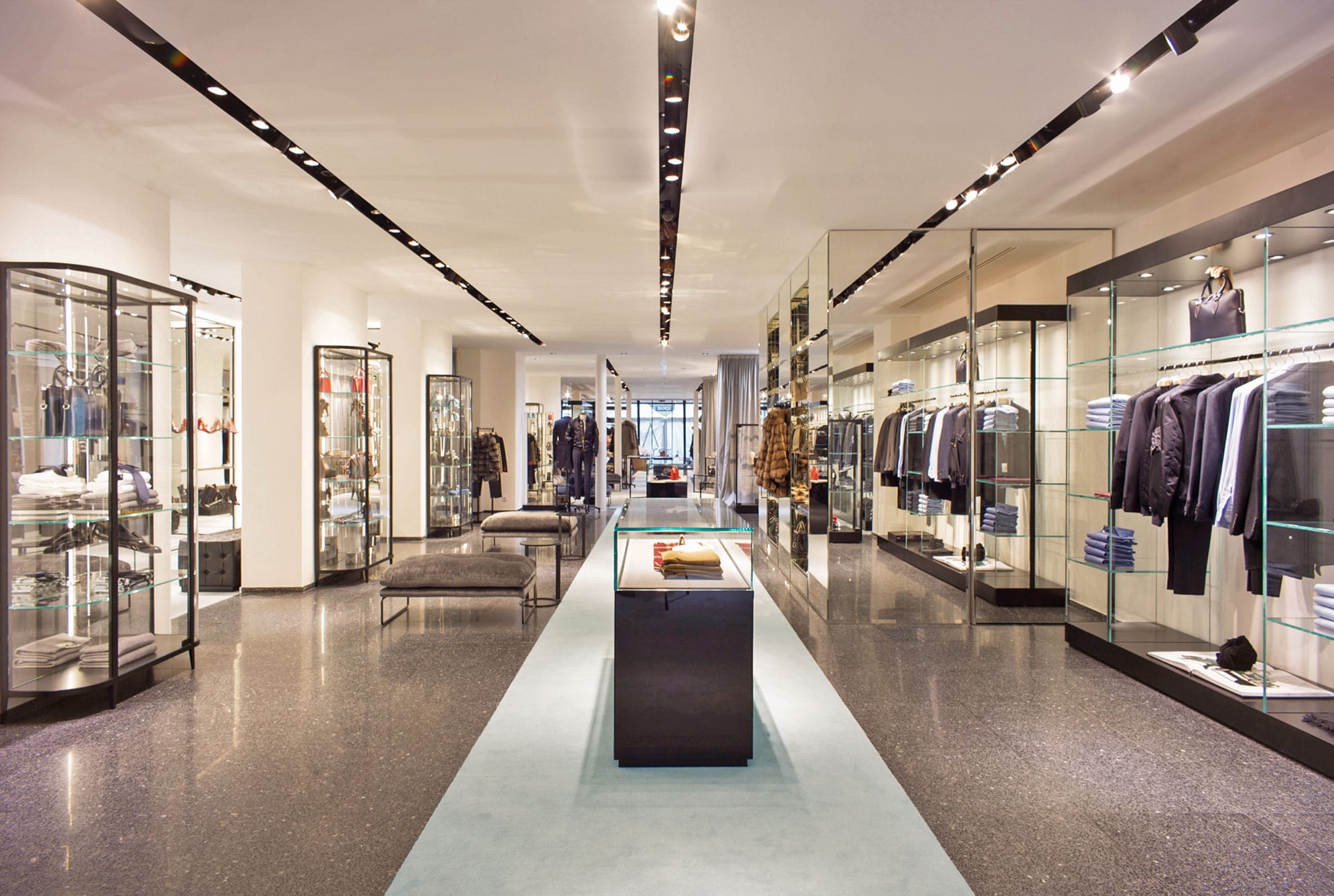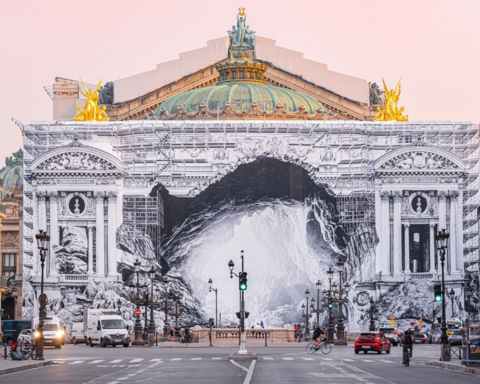[vc_row njt-role=”people-in-the-roles” njt-role-user-roles=”administrator,armember”][vc_column][vc_column_text]
The pandemic has accelerated previously emerging trends such as working from home, virtual working, optimizing business travel and the growth of e-commerce. Aside from the economic difficulties encountered, the luxury industry is beginning to view the health crisis more as an opportunity for innovation rather than an insurmountable obstacle. At least that is what the specialized research, training and consulting firm Luxury Institute says.
The virus will have transformed the luxury industry in a significant way, while allowing it to surpass itself in the areas it had somewhat overlooked. The mistake would then be to think that the strategies put in place should only last for the time of the crisis. Brands need to look at new opportunities with fresh eyes to determine how to remain competitive in 2021 and beyond.
This is what the Luxury Institute has just revealed in its survey on the forecasts and trends that will be necessary for luxury in the 2020s.
E-commerce dependent on customer data
After a year immersed in the digital world, luxury brands have been able to play the digital game to perfection and have appropriated this channel in a very original way. However, e-commerce cannot function fully and sustainably without customer data. Indeed, there is a growing realization that the missing factor driving digitization is the richness and relevance of real-time customer data. Without it, the luxury goods company will not be able to meet current customer needs or generate critical business information and solutions to win in a hyper-competitive, customer-centric world.
And that’s something brand creative directors understand. They understand that they can no longer be satisfied with a traditional customer relationship, they need to get to know their customers much more intimately in the future. Nowadays, many formal and informal research sources are used for inspiration and new product development. In the years to come, creative directors and creative agencies will be looking for the richest customer data, which will be analyzed according to the desires, needs and passions of customers and prospects. This will allow them to propose products that will have a much higher probability of success through much more creative risk-taking and customized offers. As a result, the products offered will no longer come solely from the instinct and personal judgment of brands.
Personal customer data will then undergo a revolution that will mark the beginning of a decade in which new and better performance indicators will appear. Thanks to the Luxury Institute’s latest initiative, the Advanced Personalization Xchange (APX), a proprietary “data on demand” platform, or Data as a service (DaaS), for premium and luxury brands. Through the platform, customers can obtain a legal, secure and private license to their social and digital data from brands they trust and love, in exchange for benefits and rewards.
Peter Fader, Professor at the Wharton School of the University of Pennsylvania and author of “The Customer Centricity Playbook”, analyzed the APX, and said, “In the near future, new tools for measuring customer value over the lifetime of the customer will focus on data from the customers who buy the most and share the most data and information. This will help deepen relationships and generate value for customers and businesses“.
This challenge is also due to the prosperity of luxury companies against competition from famous recommendation and prediction engines like Amazon. It is estimated that Amazon’s recommendation engines account for approximately 35% of their sales. Indeed, the company has filed a patent for a shipping system that reduces delivery times by predicting more accurately what buyers will buy long before they buy it. The goal is for Amazon’s data and algorithms to know customers so well, and for the algorithms to become so accurate in their predictions, that they anticipate what customers want before they know it, or before they click “buy“.
The luxury industry cannot afford to be outdone by companies like Amazon in the area of prediction and recommendation engines, engines that clearly improve the customer experience. The industry must use the trust placed in them by the consumer to gain privileged access to relevant data and information in order to customize their offer optimally for each customer. Soon, luxury brands will offer advanced personalization with the deep humanity and emotional intelligence that Amazon does not have. This is the new definition of an extraordinary customer experience.
Customers won’t have to worry about protecting their personal data. Indeed, the exponential quest for personal data protection, security and control rights for all human beings is and will be one of the great challenges of the luxury industry. The world’s luxury industry leaders will fully commit themselves to this cause and become exemplary business models in the field of privacy and personal data protection.
This is an indispensable issue because if luxury brands wish to be aware of more “intrusive” customer data to improve their performance, they must assure their customers that this data is protected.
The luxury industry will need to use artificial intelligence to generate, simulate and validate their great creative ideas that will revolutionize commerce.
Knowing how to reconcile artificial and emotional intelligence
Indeed, luxury marketing will have to rely on artificial intelligence that offers prediction and recommendation engines centered on the customer and his needs. Without these, they will not be able to compete with companies like Amazon and Alibaba, which continue to improve dramatically, and they will be at the mercy of digital platforms.
As data and AI grow dramatically in the luxury industry, emotional intelligence must not be forgotten and must become increasingly important to maintain real customer relationships. This is a truth that concerns all sectors, only the luxury industry necessarily generates a strong emotional charge when buying high value items. That’s why AI will not just replicate Amazon’s soulless transactional business model.
In order to do so, expert advisors who master the pillars of emotional intelligence, such as deep empathy, reliability and generosity, will be developed and sought after for their fiduciary judgment and decision support in each category of luxury products and services.
Clients will therefore be cared for with much more care, attention and emotional intelligence.
Read also > HOW ALIBABA IMPOSES OUR LUXURY BRANDS IN CHINA
Featured photo : Press[/vc_column_text][/vc_column][/vc_row][vc_row njt-role=”not-logged-in”][vc_column][vc_column_text]
The pandemic has accelerated previously emerging trends such as working from home, virtual working, optimizing business travel and the growth of e-commerce. Aside from the economic difficulties encountered, the luxury industry is beginning to view the health crisis more as an opportunity for innovation rather than an insurmountable obstacle. At least that is what the specialized research, training and consulting firm Luxury Institute says.
The virus will have transformed the luxury industry in a significant way, while allowing it to surpass itself in the areas it had somewhat overlooked. The mistake would then be to think that the strategies put in place should only last for the time of the crisis. Brands need to look at new opportunities with fresh eyes to determine how to remain competitive in 2021 and beyond.
This is what the Luxury Institute has just revealed in its survey on the forecasts and trends that will be necessary for luxury in the 2020s.
E-commerce dependent on customer data
After a year immersed in the digital world, luxury brands have been able to play the digital game to perfection and have appropriated this channel in a very original way. However, e-commerce cannot function fully and sustainably without customer data. Indeed, there is a growing realization that the missing factor driving digitization is the richness and relevance of real-time customer data. Without it, the luxury goods company will not be able to meet current customer needs or generate critical business information and solutions to win in a hyper-competitive, customer-centric world.
[…][/vc_column_text][vc_cta h2=”This article is for subscribers only.” h2_font_container=”font_size:16″ h2_use_theme_fonts=”yes” h4=”Subscribe now!” h4_font_container=”font_size:32|line_height:bas” h4_use_theme_fonts=”yes” txt_align=”center” color=”black” add_button=”right” btn_title=”I SUBSCRIBE!” btn_color=”danger” btn_size=”lg” btn_align=”center” use_custom_fonts_h2=”true” use_custom_fonts_h4=”true” btn_button_block=”true” btn_custom_onclick=”true” btn_link=”url:https%3A%2F%2Ftest2023.luxus-plus.com%2Fen%2Fabonnements-et-newsletter-2-2%2F|||”]Unlimited access to all the articles and live a new reading experience, preview contents, exclusive newsletters…
Already have an account? Log in.[/vc_cta][vc_column_text]Featured photo: © Press[/vc_column_text][/vc_column][/vc_row][vc_row njt-role=”people-in-the-roles”][vc_column][vc_column_text]
The pandemic has accelerated previously emerging trends such as working from home, virtual working, optimizing business travel and the growth of e-commerce. Aside from the economic difficulties encountered, the luxury industry is beginning to view the health crisis more as an opportunity for innovation rather than an insurmountable obstacle. At least that is what the specialized research, training and consulting firm Luxury Institute says.
The virus will have transformed the luxury industry in a significant way, while allowing it to surpass itself in the areas it had somewhat overlooked. The mistake would then be to think that the strategies put in place should only last for the time of the crisis. Brands need to look at new opportunities with fresh eyes to determine how to remain competitive in 2021 and beyond.
This is what the Luxury Institute has just revealed in its survey on the forecasts and trends that will be necessary for luxury in the 2020s.
E-commerce dependent on customer data
After a year immersed in the digital world, luxury brands have been able to play the digital game to perfection and have appropriated this channel in a very original way. However, e-commerce cannot function fully and sustainably without customer data. Indeed, there is a growing realization that the missing factor driving digitization is the richness and relevance of real-time customer data. Without it, the luxury goods company will not be able to meet current customer needs or generate critical business information and solutions to win in a hyper-competitive, customer-centric world.
[…][/vc_column_text][vc_cta h2=”This article is for subscribers only.” h2_font_container=”font_size:16″ h2_use_theme_fonts=”yes” h4=”Subscribe now!” h4_font_container=”font_size:32|line_height:bas” h4_use_theme_fonts=”yes” txt_align=”center” color=”black” add_button=”right” btn_title=”I SUBSCRIBE!” btn_color=”danger” btn_size=”lg” btn_align=”center” use_custom_fonts_h2=”true” use_custom_fonts_h4=”true” btn_button_block=”true” btn_custom_onclick=”true” btn_link=”url:https%3A%2F%2Ftest2023.luxus-plus.com%2Fen%2Fabonnements-et-newsletter-2-2%2F|||”]Unlimited access to all the articles and live a new reading experience, preview contents, exclusive newsletters…
Already have an account? Log in.[/vc_cta][vc_column_text]Featured photo: © Press[/vc_column_text][/vc_column][/vc_row]










